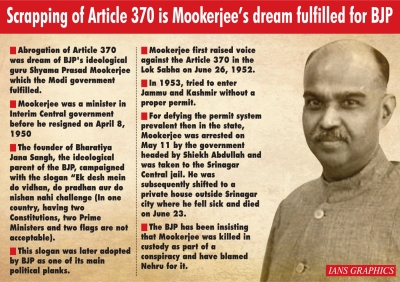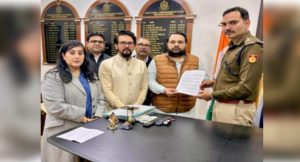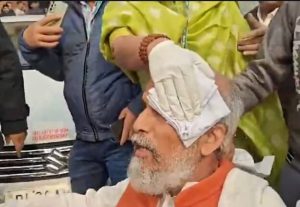Scrapping of Article 370 is fulfilment of Syama Prasad Mookerjee’s dream for BJP

IANS - GRAPHICS
IANS - GRAPHICS
New Delhi (3 MIN READ): For the BJP, scrapping of Article 370 is fulfilment of a dream of its ideological guru Syama Prasad Mookerjee who was the first to launch a campaign to abrogate this temporary provision in the Indian Constitution which granted special status to the state of Jammu and Kashmir.
Mookerjee, who was a minister in the Interim Central government headed by Jawaharlal Nehru before he fell out with him and resigned on April 8, 1950, was strongly against the Article as he felt that it hampered the complete unification of India. The Bharatiya Janata Party later adopted this and made it one of its main political planks.
The founder of Bharatiya Jana Sangh, the ideological parent of the BJP, campaigned with the slogan “Ek desh mein do vidhan, do pradhan aur do nishan nahi chalenge (In one country, having two Constitutions, two Prime Ministers and two flags are not acceptable). Under the provision, the state of Jammu and Kashmir had a separate Constitution and flag.
The Article, originally meant to be a temporary provision in the Constitution, restricted the powers of the Union of India and Parliament, including with regard to applicability of central laws in the state as these were to be endorsed by the state Assembly.
Under the Article, the Head of the State of Jammu and Kashmir was initially called ‘Sadr-e-Riyasat’ (meaning President) and the Head of the government was termed as ‘Wazir-e-Azam’ (meaning Prime Minister). Besides, it gave the right to the state government to describe the state’s ‘permanent residents’ and only they could to purchase movable property and be eligible for government jobs and admission to higher educational institutions. It also prohibited anyone from outside Jammu and Kashmir from entering the state without an appropriate permission from the state government.
The Article, however, was diluted to a large extent from 1952 to 1965, including the change of nomenclature of the Head of the state of Jammu and Kashmir to ‘Governor’ and that of the Head of the government to ‘Chief Minister’.
Mookerjee first raised voice against the Article in the Lok Sabha on June 26, 1952, saying that it could lead to disintegration of India. He kept pressing Nehru that this provision should be removed at the earliest.
In 1953, he went a step further by trying to enter Jammu and Kashmir without a proper permit, in defiance of the requirement. That became the last visit of his life as he died in custody under mysterious circumstances.
For defying the permit system prevalent then in the state, Mookerjee was arrested on May 11 by the government headed by Shiekh Abdullah and was taken to the Srinagar Central jail. He was subsequently shifted to a private house outside Srinagar city where he fell sick and died on June 23.
There were demands for an independent inquiry into his death, including from his family, but Nehru maintained that there was no foul play.
The BJP has been insisting that Mookerjee was killed in custody as part of a conspiracy and have blamed Nehru for it.
Ever since it was founded in 1980, the BJP has made abrogation of Article 370 one of its main political planks to take forward Mookerjee’s goal of abrogating the provision from the Constitution. It has regularly found prominent mention in BJP’s poll manifestos and some of its leaders even moved the Supreme Court for scrapping the provision.
There have been repeated warnings by some political parties, including the Congress as well as the Kashmir-centric parties like National Conference and Peoples Democratic Party, against tampering with the Article but the Modi government ignored all these and took this bold step to consign the controversial provision of the Constitution to the dustbin of history.
Published on: Aug 6, 2019 at 10:54 IST
IANS




